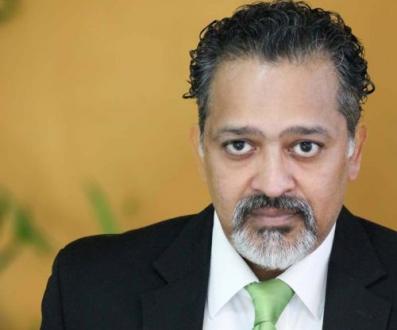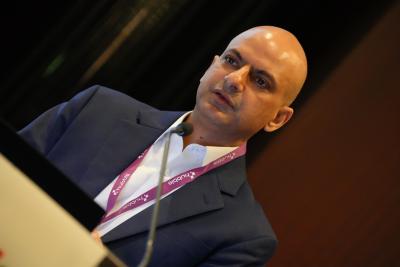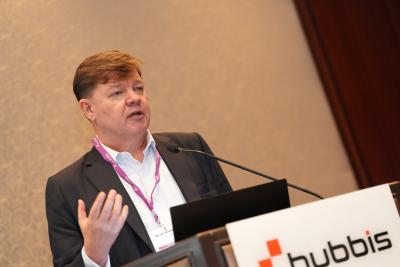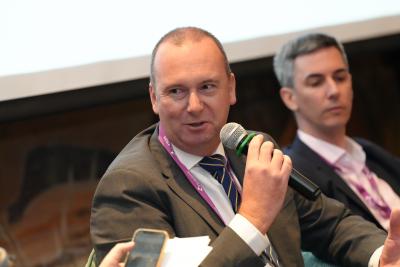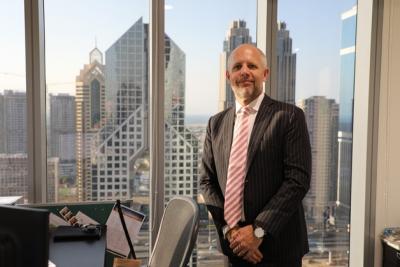Wealth Management in Uncertain Times – Views from Madhavan Sivashankar in Dubai
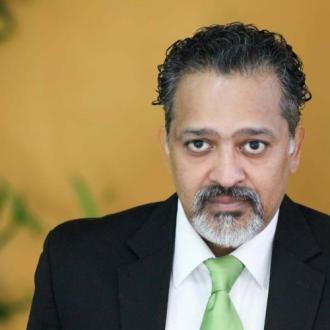
Madhavan Sivashankar of Gulf International Finance
Jul 3, 2020
A seasoned banker with over 25 years of experience in multinational banks such as American Express Bank, ABN AMRO, Credit Suisse AG and Citibank, Madhavan Sivashankar has great insights to offer on the evolution of wealth management in the UAE. He is Founder & CEO of Gulf International Finance Limited, which began life over five years ago, and a recent winner in the category ‘Financial Services CEO of the Year (Middle East)’ at the Global CEO Excellence Awards 2020, hosted by CEO Monthly. Hubbis met up with him by video link in late May and learned more about the evolution of his firm, as well as about how he and colleagues, and the firm’s clients, are coping with life under the cloud of Covid-19.
Sivashankar begins by offering some insights into the Gulf International Finance Limited (GIFL) model. He explains that the firm focuses on two distinct verticals, one being wealth management advisory, wherein GIFL arranges custody for high net worth clients, family offices and others with reputed custodian banks in Switzerland, the Middle East, Singapore, Mauritius, and other locations. And the other vertical is corporate finance advisory, in particular organising borrowing, advising on credit ratings, M&A and other key areas. We want to be a one stop financial advisory shop offering a complete solution to both professional individual and institutional clients. Operating out of the DIFC in Dubai, GIFL today comprises 18 team members, including ex-bankers who are responsible for coverage and analysis, and administrative personnel for support.
He reports that GIFL has thus far been weathering the storm creating by the virus, and the lockdown that began in Dubai in mid-March. He recalls that quite a number of investors using excessive leverage faced margin calls in February and March, forcing them out of positions that later recovered significantly. GIFL, fortunately, reports Sivashankar, did not face any such event with its client base owing to very limited use of leverage, as advised to their clients in 2018 and 2019, in anticipation of some significant market correction. “As a jurisdiction, however,” he reports, “Dubai has handled the pandemic well, and absorbed the shocks, with people now adapting well to the situation.”
“Whilst there is economic impact, as is to be expected, we feel very safe and secure with the proactive actions being taken by the government to protect its citizens and residents,” he adds.
Rolling with the punches
He quotes the movie Rocky in which Sly Stallone starred, commenting that what really matters is not how hard you can hit, but if you are hit hard, how quickly you can recover.
“That is something that sort of inspired us, an anecdote about fortitude,” he says. “I actually looked up the word resilience and found it really means the ability to recover from a problem. And that is what we have all been doing.”
Strategising in the mists of Covid-19
Sivashankar takes a step back from the vacillations of sentiment around the virus to survey the evolution of the wealth market. “From our perspective,” he reports, “we have been doing a lot of thinking about what we are and where we should head."
"We broke this down into four elements, what we have called C2E2, with the ‘C’s being coverage and communication, and the ‘E’s being execution and evaluation. Our future plans really hinge on these aspects, and in all these areas, we have been analysing and working on how much of this we can make digital.”
He explains that coverage and communication have become around 90% digital, all the execution is happening digitally, while the evaluation processes, which include controls, checks, measures, and compliance, is a work in progress.
Skin in the game
“And on the revenue side,” he adds, “we now seldom engage with any client or prospect unless there is an appointment fee and a retainer for our services because we feel that the clients and we need a mutual commitment, skin in the game so to speak. And a mutual commitment helps focus on what we should all be doing, namely to work on products and solutions that are highly relevant to the clients, that are entirely suited to them and their risk and reward profiles and expectations.”
He also refers to his personal opinion, as yet unconfirmed, for passporting of financial services solutions through the region. “This will transcend local regulators,” he says, “and create more of a regionwide market if it indeed takes place as some anticipate. But it has not happened yet.”
“It is a matter of time before unregulated entities in the financial services space will have to merge with the established entities or get regulated. This could throw up some mutually beneficial collaboration opportunities in the future,” he adds.
Uncertainty prevails
As to asset allocation, Sivashankar explains that right now, traditional portfolio theories do not work, as the world is in such a state of uncertainty and flux. “For the moment,” he says, “there is more of an opportunistic investment focus, due to the unpredictability of the economies and the markets.”
“And we are seeing a certain shift from cash out into other investment asset classes, including some new genres of investments which the region is experiencing, for example student accommodation in certain developed markets, an investment concept developed in Europe, and another concept is term assurances which might be on the brink of default through an established and FCA regulated fund based in the UK, etc. Both of these are inversely correlated to other asset classes and form effective solutions to hedge the portfolio when markets embark on uncharted and unpredictable times.”
Advisory, not DPM
He reports that the current generation of clients has been more inclining towards the professional management of their money, more in the realms of advisory and quasi-discretionary. “Actually,” he reports, “we chose not to have a discretionary license, we work on the advisory side, so we present ideas and the clients then act upon those through our firm. We do not see rising interest at all in real DPM; in fact, the banks offering this are not doing well at all.”
Sivashankar’s Key Priorities
Sivashankar also highlights his and the firm’s key priorities at this time. “Right now, it is impossible we feel to really look far into the future,” he reports, “so we are looking at our business on a quarterly basis. Yes, this is somewhat myopic, but who right now has perfect vision of the future? The reality is we don’t have enough information at this point to either make investments or reduce investments in any really logical or ordered way, because things could drastically change. We must therefore remain entirely nimble.”
As for the exact priorities for Sivashankar and the firm currently, he explains first that the firm’s motto of the moment is no longer Stay Safe but Stay Safe and Productive. “There is a tendency for when you are in a lockdown situation to actually reduce activity levels, but we have tried to keep those activity levels up at the firm,” he explains. “The second priority of course is in terms of ensuring that we protect all our employees, so we are keeping our team intact.” He reiterates that GIFL shall not use the pandemic to let go of any staff, but performance parameters will be applicable as has been the case historically. The parameters however would include both activities and results so as to retain active employees, with expected results down the road.
“And the third priority has been that to keep feeding clients with ideas, to ensure that we retain as much engagement with the clients as possible. Cross sell amongst the business verticals is also encouraged and remunerated accordingly,” Sivashankar reports.
Sivashankar closes the discussion by reiterating that the ability to be highly in tune with the clients at this time, and to position the firm to be as agile as possible are the two vital factors that will help the firm and its clients through what are certainly difficult times. “And keeping our team intact is a vital part of that, as continuity of expertise and high-quality advice and execution are vital to our success looking ahead.”
He continues: “The best way is to, for all market participants, including but not limited to clients, employees, counterparties, associates, and so on, to hold hands. Being competitive is healthy but the need of this hour is collaboration.” He is particularly grateful to GIFL’s jurisdiction, the DIFC and its regulator the DFSA, he reports, for being understanding with deserving firms, in assisting them tide over the crisis with limited impact.
Getting Personal with Madhavan Sivashankar
Sivashankar comes from Chennai, India, although it went by the name of Madras when he was born. He schooled in Mumbai and Pune through to obtaining his MBA and then went for further specialisation in Finance at the New York Institute of Finance in New York.
He then enjoyed a career spanning interesting and increasingly prominent as a commercial banker and a private banker in brands such as ABN AMRO, Citibank, American Express and Credit Suisse, prior to starting GIFL in early 2015.
“My first career landmark,” he recalls, “was getting selected during a campus interview by Citibank, not bad considering about 290 people applied for just two or three positions. That really set the stage for my career. Later on, the major event was moving into private banking in Dubai with American Express Bank; that was way back in 2004 and the move really set me on the major trajectory that resulted in me founding GIFL some years back.”
Married with two daughters, aged 15 and 13, Sivashankar enjoys the unusual pastime of boxing in his spare time. “I did some amateur boxing back in the day, and participated in a few competitions as well, so I know how it is to be hit ” he reports. “Nowadays, as I am rather older, it is the sandbag and gloves of course, not real boxing. I also wanted to be a really good golfer, but despite making a major effort to improve, I must admit I have not made the grade there. It remains something I enjoy, but not something I will likely ever be good at!”

Founder & CEO at Gulf International Finance

More from Madhavan Sivashankar, Gulf International Finance
Latest Articles


